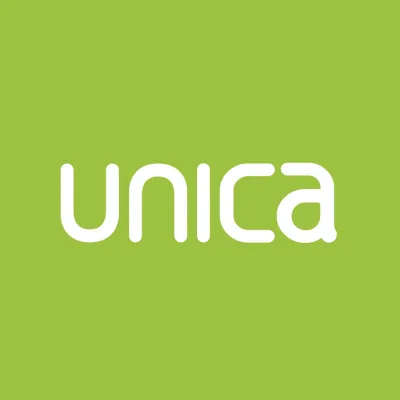General information
Beneficiary type
- Producer group / cooperative / farmer’s association
CAP specific objective
- SO1. Ensuring viable farm income
- SO2. Increasing competitiveness: the role of productivity
- SO3. Farmer position in value chains
- SO4. Agriculture and climate mitigation
- SO5. Efficient soil management
Intervention type
- Art. 47 – Fruit and vegetables
Summary
Spain's horticultural greenhouse sector is an important part of the rural economy, being crucial for both agricultural output and local employment. Fruit and vegetables are especially important components of healthy and nutritional food systems. This sector can be improved by tackling key challenges like water scarcity, environmental sustainability, and profitability.
The FIGURA project, led by the Association of Producer Organisations UNICA GROUP, aims to address such key challenges of fruit and vegetable production in greenhouse cultivation.
Through applied research and participatory trials, the initiative improves resource efficiency and promotes best practices in horticulture.
A dedicated research centre supports experimentation and continuous training, ensuring the widespread adoption of sustainable methodologies in the sector.
Results
- The project improved the sustainability of the practices applied in participating greenhouses.
- It increased knowledge and adoption of efficient agricultural techniques.
- It enhanced crop performance and quality through optimised resource management.

Promoter
UNICA GROUP SCA
Funding
Total budget 5 073 108 (EUR)
CSP support: 2 536 554 (EUR)
Private/own: 2 536 554 (EUR)
Resources
Documents
Context
Spain's horticultural greenhouse sector is an important part of the rural economy, being crucial for both agricultural output and local employment. This sector can be improved by tackling key challenges like water scarcity, environmental sustainability and profitability.
Declining profitability can pose a threat. To counteract this trend, value-added strategies such as fostering cooperative models among small-scale farmers may enhance bargaining power against larger commercial entities while reducing operational costs through shared resources. Embracing technological innovations can also address declining profitability in greenhouse horticulture, e.g. modernised climate control and nutrient delivery systems safeguard resource use while reducing labour costs. Additionally, data-driven decision-making allows growers to respond dynamically to market demands and environmental conditions, ultimately improving financial viability in an increasingly competitive agrifood market.
Addressing structural water shortages is imperative for enhancing productivity and sustainability in this sector. The Mediterranean climate, characterised by irregular rainfall patterns, exacerbates water scarcity and expense. Implementing advanced irrigation technologies such as drip systems or rainwater harvesting can optimise water usage and reduce dependency on traditional sources. Additionally, promoting drought-resistant crop varieties can bolster resilience against climate variability while ensuring consistent yields.
Intensive farming practices can lead to soil degradation, pesticide overuse, or biodiversity loss, so transitioning towards lower-impact horticulture methods helps mitigate adverse ecological effects while aligning increasingly with consumer demand for sustainable products.
UNICA GROUP SCA is a fruit and vegetable Association of Producer Organisations (AOP) approved by the ministry of agriculture of the Andalusian government in Spain. Within UNICA GROUP’s 2024-2028 Operational Program for CAP funding, they developed the FIGURA project focused on greenhouse horticulture.
UNICA GROUP SCA leads this FIGURA project and involves researchers from the cooperative CIT COEXPHAL, the University of Almeria, Bioline AgroSciences Ltd, LABCOLOR Laboratorio Agroalimentario, HISPATEC (a multinational company specialising in software and agricultural technology) and ES PROYECTA consulting company.
Objectives
FIGURA was launched to promote sustainable practices that enhance resource efficiency and climate resilience in Spain’s greenhouse horticulture sector by addressing key challenges from water shortages, environmental damage and declining profitability. It aims to mitigate these issues by integrating research-backed solutions adapted to agricultural sector needs.
Specific objectives for FIGURA are to:
- Develop innovative and sustainable techniques for greenhouse agriculture.
- Validate cultivation protocols in collaboration with the IFAPA (El Instituto Andaluz de Investigación y Formación Agraria, Pesquera, Alimentaria y de la Producción Ecológica) research centre.
- Improve operational efficiency and resource management in greenhouse farming.
- Establish a research and training centre for sustainable horticultural practices.
- Facilitate knowledge transfer through participatory research with producers and technicians.
Activities
The project activities include:
- Conducting research trials at UNICA’s experimental farm and the commercial farms of project participants.
- Creating a research and demonstration centre equipped with greenhouses, fertigation systems, climate sensors and soil management strategies.
- Implementing a participatory research model involving producers and technical personnel in practical trials.
- Evaluating the agronomic performance of commercial crop varieties.
- Testing innovative cultivation techniques under real greenhouse conditions.
- Disseminating findings and best practices through workshops and industry collaborations with participating organisations.
Main results
- The project improves the sustainability of practices applied in participating greenhouses.
- It increases knowledge and adoption of efficient agricultural techniques.
- An advanced training centre for sector professionals was developed.
- The project enhances crop performance and quality through optimised resource management.
- It strengthens collaboration between research institutions and producers, leading to expected long-term improvements in profitability and environmental sustainability.
Key lessons
- The project demonstrated that active sector participation improves the success of research initiatives.
- Trials in commercial farms accelerate the adoption of sustainable practices.
- Multidisciplinary collaboration fosters innovative problem-solving.
- Investment in training facilities ensures long-term impact and better knowledge dissemination. Integrating digital monitoring tools enhances agricultural precision.
- Fruit and vegetables are especially important components of healthy and nutritional food systems.
“The FIGURA project is an innovative step towards sustainable greenhouse agriculture, addressing key challenges while improving efficiency and productivity in farming sector.”
